
The cinema of France comprises the film industry and its film productions, whether made within the nation of France or by French film production companies abroad. It is the oldest and largest precursor of national cinemas in Europe, with primary influence also on the creation of national cinemas in Asia.

Alain Resnais was a French film director and screenwriter whose career extended over more than six decades. After training as a film editor in the mid-1940s, he went on to direct short films including Night and Fog (1956), an influential documentary about the Nazi concentration camps.
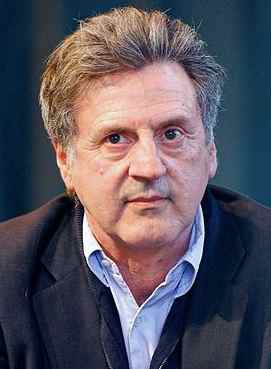
Daniel Auteuil is a French actor and director who has appeared in a wide range of film genres, including period dramas, romantic comedies, and crime thrillers. In 1996 he won the Best Actor Award at the Cannes Film Festival together with Belgian actor Pascal Duquenne. He is also the winner of two César Awards for Best Actor, one in 1987 as Ugolin Soubeyran in Jean de Florette and Manon des Sources and one for his role in Girl on the Bridge. For his role in Jean de Florette he also won the BAFTA Award for Best Actor in a Supporting Role. Auteuil is considered one of France's most respected actors.
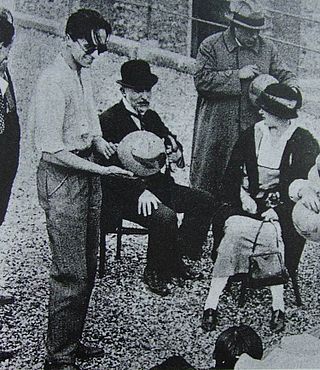
René Clair, born René-Lucien Chomette, was a French filmmaker and writer. He first established his reputation in the 1920s as a director of silent films in which comedy was often mingled with fantasy. He went on to make some of the most innovative early sound films in France, before going abroad to work in the UK and USA for more than a decade. Returning to France after World War II, he continued to make films that were characterised by their elegance and wit, often presenting a nostalgic view of French life in earlier years. He was elected to the Académie Française in 1960. Clair's best known films include Un chapeau de paille d'Italie, Sous les toits de Paris, Le Million (1931), À nous la liberté (1931), I Married a Witch (1942), and And Then There Were None (1945).

Marie-José Benhalassa, known professionally as Marie-José Nat, was a French actress. Among her notable works in cinema were the sequel films Anatomy of a Marriage: My Days with Jean-Marc and Anatomy of a Marriage: My Days with Françoise (1963), directed by André Cayatte. In 1974, she received a Cannes Film Festival Award for Best Actress for her performance in the film Violins at the Ball.
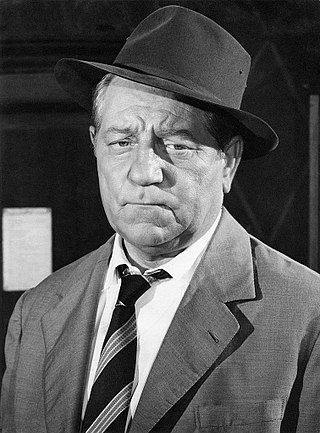
Jean Gabin Alexis Moncorgé, known as Jean Gabin, was a French actor and singer. Considered a key figure in French cinema, he starred in several classic films, including Pépé le Moko (1937), La grande illusion (1937), Le Quai des brumes (1938), La bête humaine (1938), Le jour se lève (1939), and Le plaisir (1952). During his career, he twice won the Silver Bear for Best Actor from the Berlin International Film Festival and the Volpi Cup for Best Actor from the Venice Film Festival, respectively. Gabin was made a member of the Légion d'honneur in recognition of the important role he played in French cinema.

Henri Verneuil was a French-Armenian playwright and filmmaker, who made a successful career in France. He was nominated for Oscar and Palme d'Or awards, and won Locarno International Film Festival, Edgar Allan Poe Awards, French Legion of Honor, Golden Globe Award, French National Academy of Cinema and Honorary Cesar awards.

Georges Sadoul was a French film critic, journalist and cinema writer. He is known for writing encyclopedias of film and filmmakers, many of which have been translated into English.

Vladimir Cosma is a Romanian composer, conductor and violinist, who has made his career in France and the United States.

Maïwenn Aurélia Nedjma Le Besco, known mononymously as Maïwenn, is a French actress and filmmaker.

Danielle Arbid is a French filmmaker of Lebanese origin who has been directing films since 1997.

Michel Brault, OQ was a Canadian cinematographer, cameraman, film director, screenwriter, and film producer. He was a leading figure of Direct Cinema, characteristic of the French branch of the National Film Board of Canada in the 1960s. Brault was a pioneer of the hand-held camera aesthetic.
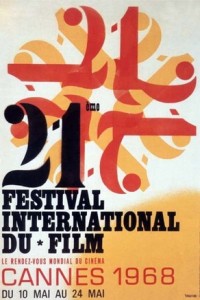
The 21st Cannes Film Festival was to have been held from 10 to 24 May 1968, before being curtailled due to the turmoil of May 1968 in France.

Raymond Depardon is a French photographer, photojournalist and documentary filmmaker.

Georges Rouquier was a French film director, screenwriter and actor. He worked principally on documentary films, and his best-known work is Farrebique (1947) a lyrical evocation of farming life in Aveyron.
Claude Weisz is a French film director born in Paris.
The Queer Palm is an independently sponsored prize for selected LGBT-relevant films entered into the Cannes Film Festival. The award was founded in 2010 by journalist Franck Finance-Madureira. It is sponsored by Olivier Ducastel and Jacques Martineau, filmmakers of Jeanne and the Perfect Guy, The Adventures of Felix, Crustacés et Coquillages, and L'Arbre et la forêt.
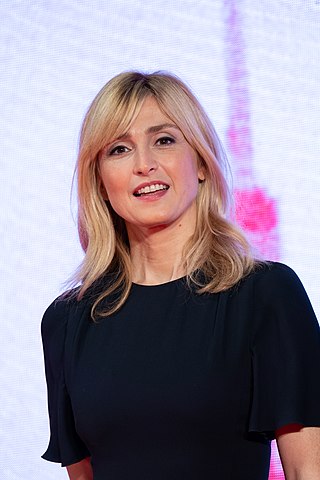
Julie Gayet is a French actress and film producer. She is also known for being the wife of the former President of France, François Hollande.
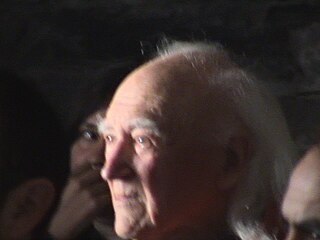
René Vautier was a French film director. His films, which were often controversial with French authorities, addressed many issues, such as the Algerian War, French colonialism in Africa, pollution, racism, women's rights, and apartheid in South Africa. Many were banned or condemned, and one caused him to go to prison for a year.
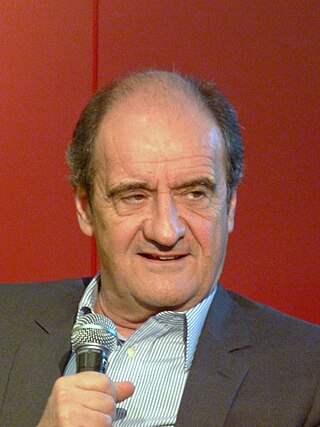
Pierre Lescure is a French journalist and television executive. He is known for having founded the French TV music show Les Enfants du rock broadcast on public television from 1981 to 1988 and for having led the French Canal+ channel from its creation in 1984 to 2002. Since 2015 he has been the president of the Cannes Film Festival.

















